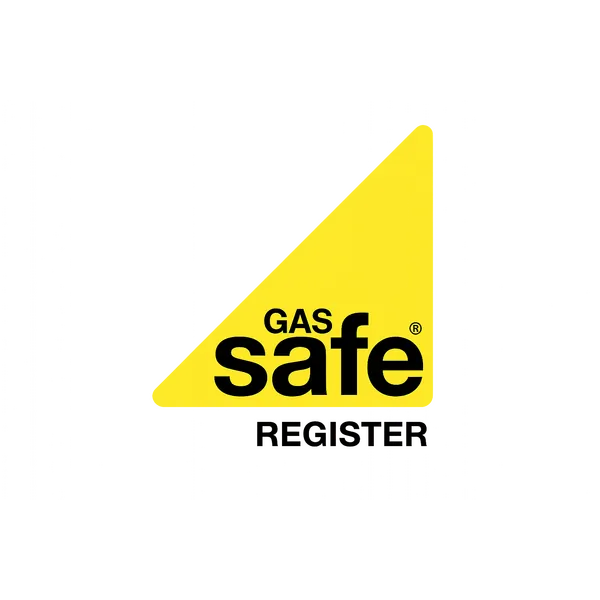The Switch to Low-Carbon Heating: Your Options Explained
As the UK accelerates towards its net-zero targets, homeowners and businesses face an important transition: moving away from traditional gas and oil heating systems to low-carbon alternatives. With the 2035 phase-out of new gas boilers approaching, understanding your options has never been more crucial. This comprehensive guide explores all available low-carbon heating technologies, their suitability for different properties, costs, available grants, and the carbon savings you can expect.
Understanding Low-Carbon Heating Technologies
Air Source Heat Pumps (ASHPs)
Air source heat pumps extract heat from the outside air, even in temperatures as low as -15°C, and amplify it to heat your home and water. They work similarly to refrigerators but in reverse, using electricity to move heat rather than generating it directly.
Key Features:
- Efficiency: Typically achieve 300-400% efficiency (COP of 3-4)
- Installation: Relatively straightforward, requiring outdoor unit space
- Running Costs: Lower than electric heating, comparable to gas in well-insulated properties
- Carbon Savings: Up to 70% compared to gas heating when using renewable electricity
Suitability: Best for properties with good insulation, underfloor heating or larger radiators, and adequate outdoor space for the unit.
Ground Source Heat Pumps (GSHPs)
Ground source heat pumps extract heat from the ground through buried pipes, providing consistent heating year-round as ground temperatures remain stable.
Key Features:
- Efficiency: Higher than ASHPs, typically 400-500% efficiency (COP of 4-5)
- Installation: More complex, requiring significant ground works or boreholes
- Running Costs: Lowest among heat pump options
- Carbon Savings: Up to 75% compared to gas heating
Suitability: Ideal for properties with substantial garden space or new builds where ground works can be incorporated during construction.
Hybrid Heating Systems
Hybrid systems combine a heat pump with a traditional boiler, allowing the system to switch between the most efficient heat source based on outdoor temperatures and energy costs.
Key Features:
- Flexibility: Automatically chooses most cost-effective heat source
- Installation: Can be retrofitted to existing heating systems
- Running Costs: Optimised based on energy prices
- Carbon Savings: 40-60% compared to boiler-only systems
Suitability: Perfect for properties where full heat pump conversion isn't practical or for homeowners wanting to transition gradually.
Biomass Boilers
Biomass heating systems burn organic materials like wood pellets, chips, or logs to provide heating and hot water.
Key Features:
- Fuel Source: Renewable wood fuels from sustainable sources
- Carbon Neutral: Considered carbon neutral as the CO₂ released is balanced by what the trees absorbed
- Running Costs: Competitive with fossil fuels, depending on wood fuel prices
- Storage: Requires space for fuel storage and regular refilling
Suitability: Best for rural properties with space for fuel storage and where wood fuel is readily available.
District Heating Networks
District heating connects multiple properties to a central energy source, such as a biomass plant, waste heat from industry, or geothermal sources.
Key Features:
- Centralised: Single heat source serving multiple buildings
- Efficiency: Highly efficient at scale
- Maintenance: Reduced individual property maintenance
- Carbon Savings: Depends on heat source but typically 60-90%
Suitability: Primarily for new developments or areas with existing district heating infrastructure.
Comparative Analysis: Making the Right Choice
Cost Considerations
| Technology | Installation Cost | Running Costs | Maintenance | Lifespan | |------------|-------------------|---------------|-------------|----------| | ASHP | £7,000 - £13,000 | Medium | Low | 15-20 years | | GSHP | £15,000 - £35,000 | Low | Low | 20-25 years | | Hybrid | £5,000 - £10,000 | Medium | Medium | 15 years | | Biomass | £8,000 - £20,000 | Low-Medium | Medium | 15-20 years | | District Heating | Varies by connection | Low | Very Low | 30+ years |
Carbon Savings Potential
When comparing carbon emissions, the savings depend on your current heating system and the electricity grid's carbon intensity:
- ASHPs: 55-70% reduction compared to gas boilers
- GSHPs: 65-75% reduction compared to gas boilers
- Hybrid Systems: 40-60% reduction compared to boiler-only
- Biomass: 85-95% reduction compared to oil heating
- District Heating: 60-90% depending on heat source
Available Grants and Financial Support
The UK government offers several schemes to support the transition to low-carbon heating:
Boiler Upgrade Scheme (BUS):
- £7,500 towards air source heat pumps
- £7,500 towards ground source heat pumps
- £5,000 towards biomass boilers (in limited circumstances)
Energy Company Obligation (ECO4):
- Support for low-income households
- Can cover full cost of installation in some cases
Home Energy Scotland Grant and Loan:
- Up to £7,500 grant plus interest-free loans
- Available to Scottish homeowners
Property Suitability Assessment
Key Factors to Consider
-
Insulation Levels: Heat pumps work most efficiently in well-insulated properties. Consider upgrading insulation first if needed.
-
Heating System Type: Underfloor heating works best with heat pumps, while existing radiator systems may need upgrading.
-
Available Space: Outdoor space for ASHP units, garden area for GSHP ground loops, or storage space for biomass fuel.
-
Building Age and Type: New builds often suit GSHPs, while older properties may benefit from hybrid approaches.
-
Local Infrastructure: Check for existing district heating networks or biomass fuel suppliers in your area.
Regional Considerations
- Urban Areas: ASHPs and district heating often most practical
- Rural Properties: Biomass and GSHPs may be more suitable
- Coastal Regions: Consider corrosion-resistant ASHP models
- Listed Buildings: May have restrictions requiring careful technology selection
CRG Direct's Technology-Agnostic Advisory Approach
At CRG Direct, we believe there's no one-size-fits-all solution for low-carbon heating. Our advisory approach is completely technology-agnostic, focusing on finding the right solution for your specific circumstances.
Our Assessment Process
-
Comprehensive Property Survey: We evaluate your property's characteristics, current heating system, and energy usage patterns.
-
Financial Analysis: We calculate total cost of ownership, including installation, running costs, maintenance, and available grants.
-
Carbon Impact Assessment: We model the carbon savings for each technology option based on your specific situation.
-
Future-Proofing Considerations: We consider how your needs might change and ensure the solution remains appropriate long-term.
Why Technology-Agnostic Advice Matters
- Unbiased Recommendations: We're not tied to any particular manufacturer or technology
- Holistic Solutions: We consider your entire energy system, not just heating
- Long-Term Value: We prioritise solutions that will serve you well for decades
- Regulatory Compliance: We ensure solutions meet current and anticipated future regulations
The Transition Journey: What to Expect
Planning Phase (2-4 weeks)
- Initial assessment and technology recommendations
- Grant application support
- Detailed quotation and project planning
Installation Phase (1-3 weeks)
- Professional installation by certified engineers
- System commissioning and testing
- Handover and training
Post-Installation Support
- Performance monitoring
- Maintenance planning
- Ongoing optimisation advice
Making Your Decision: Key Questions to Ask
- What is my total budget including grants?
- How well insulated is my property?
- What space do I have available for equipment?
- How important are running costs versus upfront investment?
- What are my long-term plans for the property?
- How comfortable am I with new technology and maintenance requirements?
The Future of Heating: Why Act Now?
With energy prices fluctuating and climate targets tightening, delaying the transition to low-carbon heating carries increasing risks. Early adopters benefit from:
- Current Grant Availability: Government support may reduce over time
- Avoiding Stranded Assets: Gas boilers may lose value as phase-out approaches
- Energy Security: Reducing dependence on volatile fossil fuel markets
- Property Value: Energy-efficient homes are increasingly attractive to buyers
Take the Next Step Towards Low-Carbon Heating
The journey to low-carbon heating doesn't have to be daunting. With expert guidance and the right technology choice, you can enjoy comfortable, cost-effective heating while significantly reducing your carbon footprint.
At CRG Direct, we're here to guide you through every step of the process, from initial assessment through to installation and beyond. Our technology-agnostic approach ensures you get honest, tailored advice that puts your needs first.
Ready to explore your low-carbon heating options? Contact our expert team today for a free, no-obligation assessment of your property and heating requirements.















